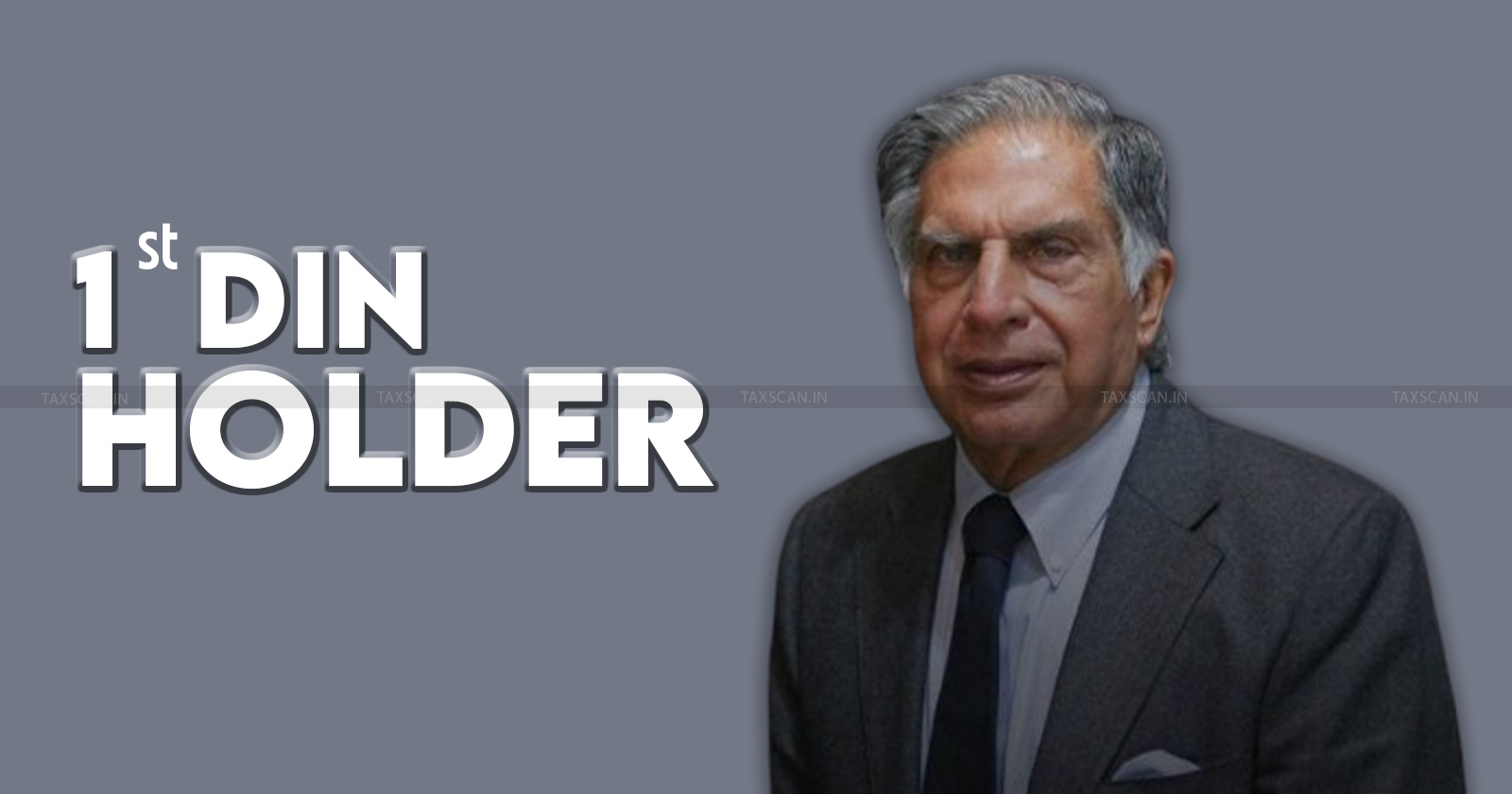1st DIN Holder and Visionary Architect of India's Economic Transformation: A Memoir of Ratan Tata
"If you want to walk fast, walk alone. But if you want to walk far, walk together." - Ratan Naval Tata

Ratan Tata – Ministry of Corporate Affairs – First DIN holders – Ratan tata News – TAXSCAN
Ratan Tata – Ministry of Corporate Affairs – First DIN holders – Ratan tata News – TAXSCAN
Indeed, as the headline indicates, Mr. Ratan Naval Tata was the first individual to be granted a Director Identification Number ( DIN ) by the Ministry of Corporate Affairs ( MCA ). His significant contributions to India's economy make him truly deserving of this honour.
The DIN of Ratan Tata is 00000001. The MCA approved Tata’s DIN on 12th May 2006. He is a man of ‘No Haters’ in both personal life and business life. A group formed in 1868 is still thriving in 2024, is a testimony to the immense efforts and dedication of its key individuals and entire team.
Stay Ahead of the Curve: Continuous Learning for Income Tax, Click here
Ratan Tata became the chairman of Tata Sons in 1991, stepping into a role that came with great responsibility. At that time, the Tata Group was primarily known within India, with limited global reach.
However, under Ratan Tata’s leadership, the group expanded rapidly and transformed into a multinational powerhouse, operating in over 100 countries by the time he stepped down in 2012. This transformation not only showcased his visionary leadership but also reflected India's noteworthy growth in the global economy.
During Ratan Tata’s tenure, there were several well-known acquisitions of international companies. In 2000, Tata Tea (now Tata Global Beverages) acquired Tetley, the largest tea brand in the UK, marking one of the first international acquisitions by an Indian company.
This was followed by Tata Steel’s purchase of Corus in 2007, which positioned Tata Steel among the world's largest steel producers. Additionally, Tata Motors acquired Jaguar Land Rover in 2008, proving that Indian companies could successfully operate on a global scale.
Ratan Tata’s influence extended beyond mergers and acquisitions. He played a decisive role in nurturing innovation across various sectors, including technology, infrastructure, and manufacturing. One of his jutting out achievements was the growth of Tata Consultancy Services (TCS), which became one of the largest IT services companies in the world under his guidance.
TCS's success helped establish India as a global hub for information technology, inspiring many other Indian tech firms and contributing to a thriving industry that generates billions in revenue and provides countless jobs.
In the automotive sector, Ratan Tata's inception of the Tata Nano in 2008 aimed to provide affordable car ownership for India's growing middle class. While the Nano did not achieve commercial success as anticipated, it showcased Tata's commitment to innovation and his vision of making cars accessible and affordable to all.
Under his leadership, Tata Motors also made advancements in electric vehicles (EVs), paving the way for sustainable transportation in India.
Stay Ahead of the Curve: Continuous Learning for Income Tax, Click here
He is also dedicated to improving India’s infrastructure. Tata Steel expanded its global operations during his time, contributing to major infrastructure projects both domestically and internationally. Tata Power focused on meeting the country’s increasing energy demands, investing in renewable energy sources and expanding power generation throughout India.
Ratan Tata set high standards for corporate governance and transparency. He believed that businesses should contribute to society rather than just pursue profits. Under his leadership, the Tata Group became synonymous with integrity, trust, and social responsibility.
Even after retiring as chairman, Ratan Tata continued to support India’s economic growth through investments in startups. He recognized the potential of young entrepreneurs and became an early supporter of successful ventures in technology, e-commerce, and healthcare.
His investments in companies like Paytm, Ola, and Urban Ladder helped fuel the growth of India’s startup ecosystem, making him a mentor for the next generation of business leaders.
Ratan Tata’s guidance went beyond financial support; he shared his vast experience to help startups navigate the complexities of the Indian market. His encouragement of innovation and entrepreneurship played a great role in India’s rapidly expanding digital economy.
Throughout his career, Ratan Tata aimed not only for corporate success but also for the broader development of India as a global economic leader. He advocated for policies that promoted industrial growth, technological innovation, and infrastructure development. His ideas influenced significant government policies, particularly those concerning manufacturing, energy, and foreign investment.
Tata’s efforts to modernise the Tata Group also encouraged other Indian businesses to adopt global standards in corporate governance and management practices. His leadership inspired a new generation of Indian business leaders to think globally, innovate, and embrace sustainability, all of which have been crucial to India’s economic transformation.
Stay Ahead of the Curve: Continuous Learning for Income Tax, Click here
Ratan Tata’s impact on India is vast and lasting. He transformed Tata Group into a global entity, promoted technological advancements, and significantly shaped India’s industrial and infrastructure landscape.
His legacy extends beyond corporate achievements; it embodies leadership, integrity, and a deep commitment to the economic and social development of India. His vision for a stronger, more inclusive, and globally competitive India will continue to inspire future generations of business leaders and entrepreneurs.
Support our journalism by subscribing to Taxscan premium. Follow us on Telegram for quick updates


